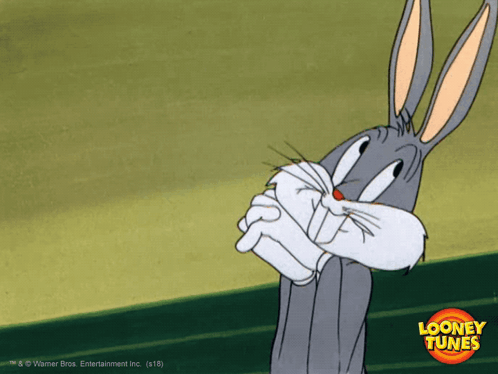Feeling Sluggish.
 April showers have brought out the slugs. Like a lot of common animals I have a history with slugs and it’s not all happy. When I was a kid my mother showed me how to kill slugs by pouring salt on them and I went up and down the sidewalk at night with a big container of the “when it rains it pours”, pouring it all over every slug I could find. The next morning I’d find shriveled leathery bodies like three-dimensional commas, an interrupted life sentence.
April showers have brought out the slugs. Like a lot of common animals I have a history with slugs and it’s not all happy. When I was a kid my mother showed me how to kill slugs by pouring salt on them and I went up and down the sidewalk at night with a big container of the “when it rains it pours”, pouring it all over every slug I could find. The next morning I’d find shriveled leathery bodies like three-dimensional commas, an interrupted life sentence.
Why did I hate the slugs so much? I can’t explain it because I loved snails. I collected snails, built little terrariums for them in empty jars, and spent hours watching them. Slugs were just escargot liberated from the extra cargo of a shell. If anything they deserved more respect for daring to go bare, but I think it was the lack of a shell that bothered me. Snails are builders, architects. They make a refuge and carry it with them, and I could pick up a snail without getting slimed, although I also let them crawl up and down my arm. Slugs, I thought, lived up to their name: sluggish. Lazy. Fat. Stupid. Slugs are unstamped coins. Big, slow moving boats. Hit somebody hard enough and you say you slugged them. And according to the Oxford English Dictionary was an insulting term for people long before it was applied to the gastropod.
That’s imposing a lot on slugs, none of it true. Well, I don’t know about slug intelligence, but their bodies are all muscle, as some friends who decided to fry them up in garlic butter since it was cheaper than going to a French restaurant discovered, and slugs can move pretty quickly, although I guess they have enough natural defenses that most of the time they don’t need to. Most animals either know or, like my friends, discover that slugs aren’t that appetizing.
I’m sure I’d also feel differently if we lived on the west coast where banana slugs are found and are even a school mascot because they’re amazing. I’d probably feel the same way about them that I did about snails. And I’ve always found sea slugs fascinating, from when I first read about them in my Jacques Cousteau books to when, on a trip to Florida, I found some hanging onto a piece of driftwood. They had amber bodies and azure gills. I carried them to the house where we stayed in Florida in a bucket with some sand and rocks and seaweed and watched them for hours. They crawled all over their temporary plastic home, occasionally swimming by curling and uncurling until they floated up to the surface then drifted back down. The next day I took them back to the beach and released them to the sea, not wanting them to die in captivity.
They lived in salt, the same stuff I used to destroy their terrestrial cousins. I don’t know if that’s what changed my mind about the sidewalk slugs but after that I let them pass.


 March is supposed to come in like a lion and go out like a lamb but the one this year apparently didn’t get the memo and came in with summer temperatures and went out with ups and downs. Then the April showers started with a midday thunderstorm that was so bad I left work in the middle of the day. My office is safer than my house in a storm—it’s eleven stories of heavy concrete, not counting the basement that’s below street level, so while it would be a lousy place to be in a flood it’s pretty solid protection from tornadoes. Still if anything really bad happened I wanted to be at home to be able to deal with it. I walked from the office building in heavy rain—“downpour” really is the best word for it, and not just because a solid sheet of water was sliding off the awning over the door—to the parking garage where I’d been smart enough to park on one of the covered levels instead of the roof as I usually do. Then I drove home through rain that was so heavy at one point I had to pull over into a parking lot because the wiper blades just weren’t cutting it. When I got pulled into the driveway at home the rain had stopped and the sun had come out.
March is supposed to come in like a lion and go out like a lamb but the one this year apparently didn’t get the memo and came in with summer temperatures and went out with ups and downs. Then the April showers started with a midday thunderstorm that was so bad I left work in the middle of the day. My office is safer than my house in a storm—it’s eleven stories of heavy concrete, not counting the basement that’s below street level, so while it would be a lousy place to be in a flood it’s pretty solid protection from tornadoes. Still if anything really bad happened I wanted to be at home to be able to deal with it. I walked from the office building in heavy rain—“downpour” really is the best word for it, and not just because a solid sheet of water was sliding off the awning over the door—to the parking garage where I’d been smart enough to park on one of the covered levels instead of the roof as I usually do. Then I drove home through rain that was so heavy at one point I had to pull over into a parking lot because the wiper blades just weren’t cutting it. When I got pulled into the driveway at home the rain had stopped and the sun had come out.


 The barred owl was back last night, calling out under the almost full and brightly ringed moon. A couple of weeks ago I was taking the garbage out in the dark, because of course that’s the best possible time to carry an overstuffed twenty-pound plastic bag around the patio, down a set of steps, behind the car, and under the deck where there’s no light at all. I heard
The barred owl was back last night, calling out under the almost full and brightly ringed moon. A couple of weeks ago I was taking the garbage out in the dark, because of course that’s the best possible time to carry an overstuffed twenty-pound plastic bag around the patio, down a set of steps, behind the car, and under the deck where there’s no light at all. I heard  When I was a kid I read a book of Cherokee legends. The story of the beginning of the world stayed with me because, according to it, all animals, plants, and trees were tested by having to stay awake for seven days and nights. Some animals—rabbits, mice, even deer—fell asleep. They became prey for the ones who stayed awake: the mountain lion, the wolf, the owl. Some of the trees managed to stay awake too. These were the pine and cedar, so they would be evergreen. Other trees didn’t pass the test, and I still remember the line: “Unable to stay awake they would sleep part of each year, and lose their hair in winter.”
When I was a kid I read a book of Cherokee legends. The story of the beginning of the world stayed with me because, according to it, all animals, plants, and trees were tested by having to stay awake for seven days and nights. Some animals—rabbits, mice, even deer—fell asleep. They became prey for the ones who stayed awake: the mountain lion, the wolf, the owl. Some of the trees managed to stay awake too. These were the pine and cedar, so they would be evergreen. Other trees didn’t pass the test, and I still remember the line: “Unable to stay awake they would sleep part of each year, and lose their hair in winter.” A friend of mine told me, “I’ve been having these dreams that I’m running through the woods on all fours. I’m chasing something and I think that running on two legs would be better, but somehow I find myself going faster than I could on two legs, and it just feels natural. Anyway if I’m not around during the next full moon maybe this is why.”
A friend of mine told me, “I’ve been having these dreams that I’m running through the woods on all fours. I’m chasing something and I think that running on two legs would be better, but somehow I find myself going faster than I could on two legs, and it just feels natural. Anyway if I’m not around during the next full moon maybe this is why.”
 Bright colors are one of nature’s ways of saying “Don’t touch.” Usually, anyway—when you’ve boiled a lobster and it turns bright red that’s nature’s way of saying “Grab the butter, it’s time to eat!” Also there are serious ethical questions about whether you should throw lobsters in boiling water while they’re still alive and nature has completely left it up to us to sort out the answer there so, hey, thanks for nothing, nature.
Bright colors are one of nature’s ways of saying “Don’t touch.” Usually, anyway—when you’ve boiled a lobster and it turns bright red that’s nature’s way of saying “Grab the butter, it’s time to eat!” Also there are serious ethical questions about whether you should throw lobsters in boiling water while they’re still alive and nature has completely left it up to us to sort out the answer there so, hey, thanks for nothing, nature. There was an unexpected passenger in the car. I know a thing or two about spiders and even I was surprised to see the large orb web spun over the passenger seat, not to mention the large Aranea cavatica in the middle of the web, and if you know anything about spiders you know that’s the same species that was the hero of a famous children’s book. Some people think the pig is the hero of the book but let’s be clear: there’s a reason it’s called Charlotte’s Web and not Wilbur’s Mudhole.
There was an unexpected passenger in the car. I know a thing or two about spiders and even I was surprised to see the large orb web spun over the passenger seat, not to mention the large Aranea cavatica in the middle of the web, and if you know anything about spiders you know that’s the same species that was the hero of a famous children’s book. Some people think the pig is the hero of the book but let’s be clear: there’s a reason it’s called Charlotte’s Web and not Wilbur’s Mudhole.
